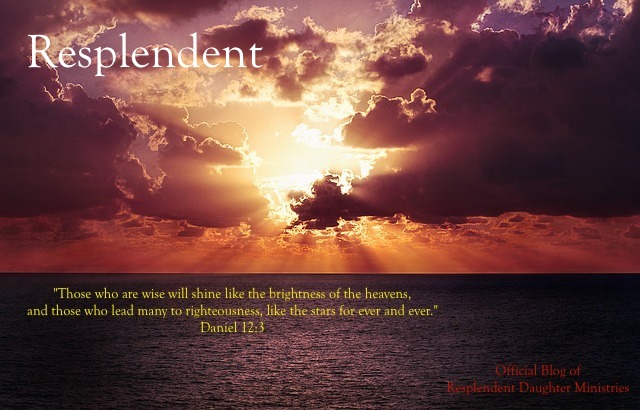As Noah and his family emerged from the Ark and after Noah had offered a burnt offering on the altar to God, He blessed this family, which would go on to re-populate the Earth. God's gracious blessing has several key elements, which we will examine today. They are found in Genesis 9:1-4 (BSB).
1And God blessed Noah and his sons and said to them, “Be fruitful and multiply and fill the earth. 2The fear and dread of you will fall on every living creature on the earth, every bird of the air, every creature that crawls on the ground, and all the fish of the sea. They are delivered into your hand. 3Everything that lives and moves will be food for you; just as I gave you the green plants, I now give you all things.4But you must not eat meat with its lifeblood still in it. 5
The first component is a grant of the land to the family, and it coupled with (sorry, could not resist the pun) the command to procreate and to re-populate the Earth. No longer was the Earth "Paradise", but it was a far cry from Hell which, due to our sinful nature, is all we deserve. Today, large families are sometimes criticized by modern American society. However, this is a worldly attitude that has no basis in Scripture. It is plain from this verse and others that God commends large families. See also Psalm 127:4-5.
The second component of the blessing is a grant of rule over all the other living creatures of the Earth. You may recall God made a similar grant to Adam (see Genesis 1:28), but with this one difference. In his sinless state, Adam ruled in love, whereas fallen man (Noah et al) ruled by fear. (This is why the mama bird in her nest this morning took one look at me behind the window and skedaddled.)
The third element concerns mankind's diet. In Genesis 1:29, mankind was directed to eat only the plant life of the Earth. However, the Great Flood changed the Earth in ways we will never know this side of Heaven, and maybe not even then. It is possible that these changes provoked God to allow Noah and his descendants to eat the flesh of living things.
The one restriction God put on the eating of animal flesh was that it was to be cooked (vs. 4). Due to the Fall of Man we see animals attack other animals and eat the meal immediately after, savagely consuming raw flesh. Mankind was directed by God to not be so. An example of this being defied can be found in 1 Samuel 14:32.
31That day, after the Israelites had struck down the Philistines from Michmash to Aijalon, the people were very faint. 32So they rushed greedily to the plunder, taking sheep, cattle, and calves.They slaughtered them on the ground and ate meat with the blood still in it. 33Then someone reported to Saul: “Look, the troops are sinning against the LORD by eating meat with the blood still in it.” “You have broken faith,” said Saul.
1 Samuel 14:31-33 (BSB)
Do not join those who drink too much wine or gorge themselves on meat.
Proverbs 23:20 (BSB)
We are to be lords over the animals of the Earth, but not tyrants. We are given lordship to use animals for our benefit, but not to abuse them for our luxury. There are also negative health repercussions for eating raw animal flesh. Our "constitutions" are not designed for this type of food.
In the picture at the head of this post, you see my husband, an avid fisherman. He caught that gorgeous 16-inch Rainbow trout this past weekend at one of his favorite "fishing holes". However, we did not need or desire that fish for food. So, after the photo op, that big boy was gently returned to the creek, to grow and flourish.
Those who abuse animals demonstrate a marked lack of godliness, and often go on to abuse people in the worst sorts of ways. There are also those who practically worship animals, going to great lengths to prevent even the God-sanctioned uses described in Genesis 9. Both these extremes are ungodly; neither is in keeping with what God ordained.
One more point about diet - -
Many Jews today still practice dietary laws that prohibit the eating of some types of animal flesh. These restrictions were put into place as part of the Mosaic law. Continuing to adhere to these practices is a matter of personal conviction for the Christian. In Acts 10:9-16, God gave permission for Peter to eat both clean and unclean animals. Paul echoes this point when criticizing false teachers who sought to divide the faithful with false doctrines about abstaining from marriage and from certain foods:
1Now the Spirit expressly states that in later times some will abandon the faith to follow deceitful spirits and the teachings of demons, 2influenced by the hypocrisy of liars, whose consciences are seared with a hot iron.
3They will prohibit marriage and require abstinence from certain foods that God has created to be received with thanksgiving by those who believe and know the truth. 4For every creation of God is good, and nothing that is received with thanksgiving should be rejected, 5because it is sanctified by the word of God and prayer.
1 Timothy 4:1-5 (BSB)
Within these parameters, let's follow the leading of the Holy Spirit, each individual operating according to how the Spirit leads. Let's seek to honor God by what we feed both our souls and our bodies, the Word of God for the former and a wide variety of healthy foods for the latter.


